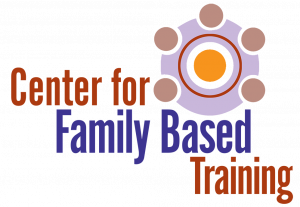Children with Serious Emotional Disturbance and their Families (Updated 2-1-19)
This course describes the population served by intensive in-home family-based programs – children and youth with Severe Emotional Disturbance (SED) and their multi-stressed families. These children and their families often share a history of chronic trauma, family instability and loss, which can make treatable mental health issues become more chronic. In this course, insights about the experience of mental illness are shared both from the perspective of adolescents and that of their caregivers. Multi-generational patterns that leave families vulnerable to crises are highlighted. A webinar identifies common patterns found in multi-stressed families which maintain or exacerbate SED and the implications these patterns have for treatment. The objectives of this course are achieved through a combination of readings, brief videos, and a webinar.
3.0 Hours CE Credit
- Teacher: C. Wayne Jones, Ph.D.
Impacts of Trauma on Children and Their Caregivers
The high prevalence of trauma and chronic adverse experiences among the children and caregivers served by community based programs demands that therapists have a thorough understanding of trauma and its impacts. This course describes how a history of danger and emotional injury shapes attitudes, expectations, relationships and the ability to self-regulate. The course is structured such that therapists can more easily understand and feel compassion for the population they work with, to learn to "see" family member's efforts to adapt to fear and vulnerability that is often hidden beneath dramatic, seemingly irrational interactions they often encounter.
3.0 Hours CE Credit
- Teacher: C. Wayne Jones, Ph.D.
Histories of adversity and trauma are common among families served in intensive, in-home programs. Although therapists may know the child’s trauma history, the caregivers’ current and past experience with adversity and trauma too often remains in the background, yet is equally as important for informing clinical decision-making. The caregivers' histories of trauma have a major impact on family structure, parenting, and response to treatment. This training introduces participants to current science and conceptualizations of complex developmental trauma, describing what it is and how it impacts brain development and brain functioning in children and caregivers. Clinician-friendly concepts from neuroscience (e.g. Siegal’s “hand model” of the brain and Porges’ concept of neuroception) are introduced to help therapists gain a basic understanding of how trauma and chronic adversity shapes emotional availability and parent-child relationships. Bruce Perry's neurobiology-informed neurosequential model of therapeutics is described as a useful tool for clinical problem solving.
3.5 Hours CE Credit
- Teacher: Tara Byers, MS, NCC, LPC
Most families treated in intensive, in-home programs have been impacted by complex developmental trauma. Although every family adapts in their own way, there are several predictable negative adaptive patterns that have direct implications for a present-focused family-based treatment. It is important for therapists to recognize these patterns, interrupt them, and create more functional ones. Towards this end, this course describes 1) the most common impacts of complex developmental trauma on the way families organize their relationships with one another and the community, 2) how the four pillars of ESFT are designed to address these common negative impacts, and 3) strategies for structuring trauma-informed conversations with families.
1.5 Hours CE Credit
- Teacher: C. Wayne Jones, Ph.D.
